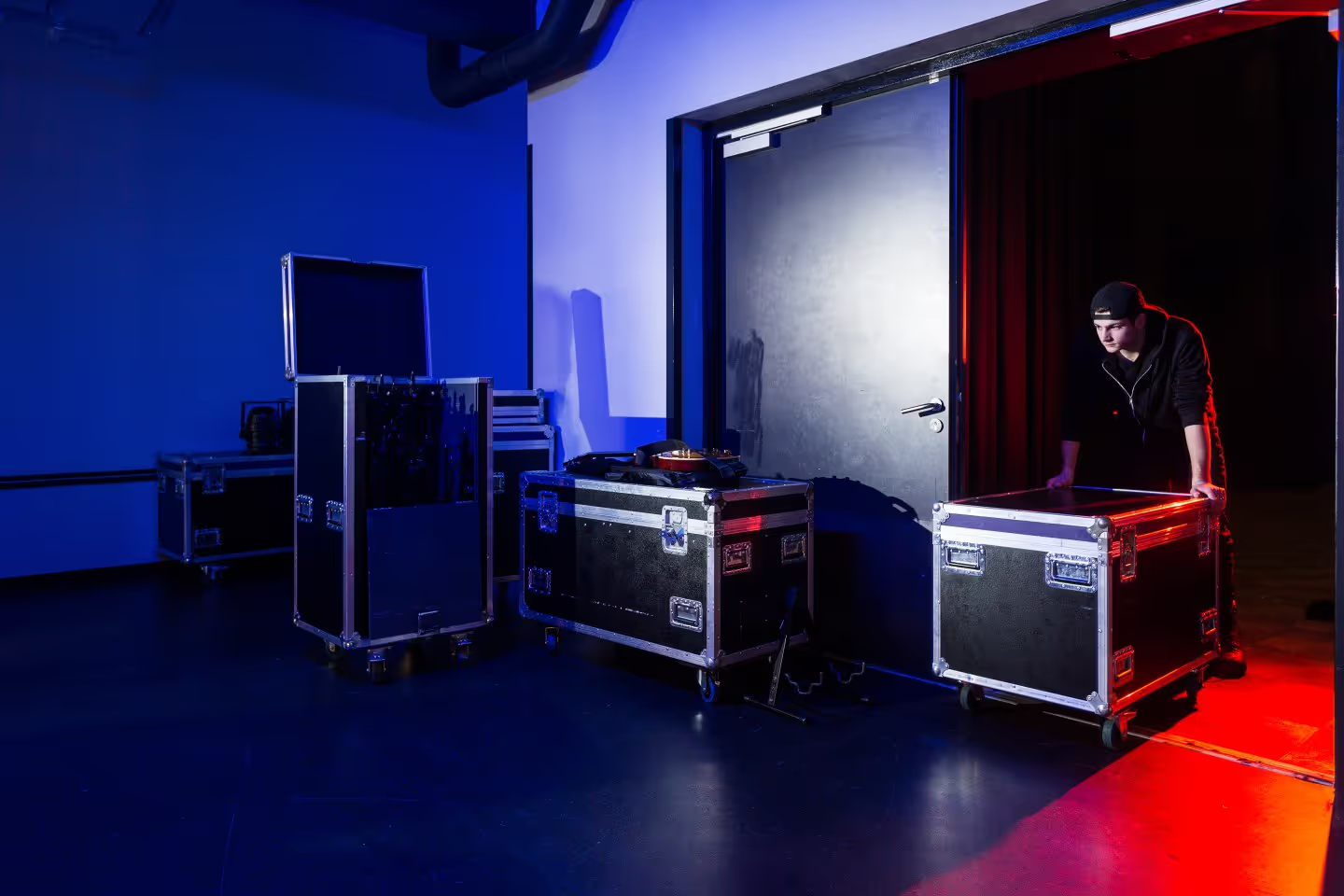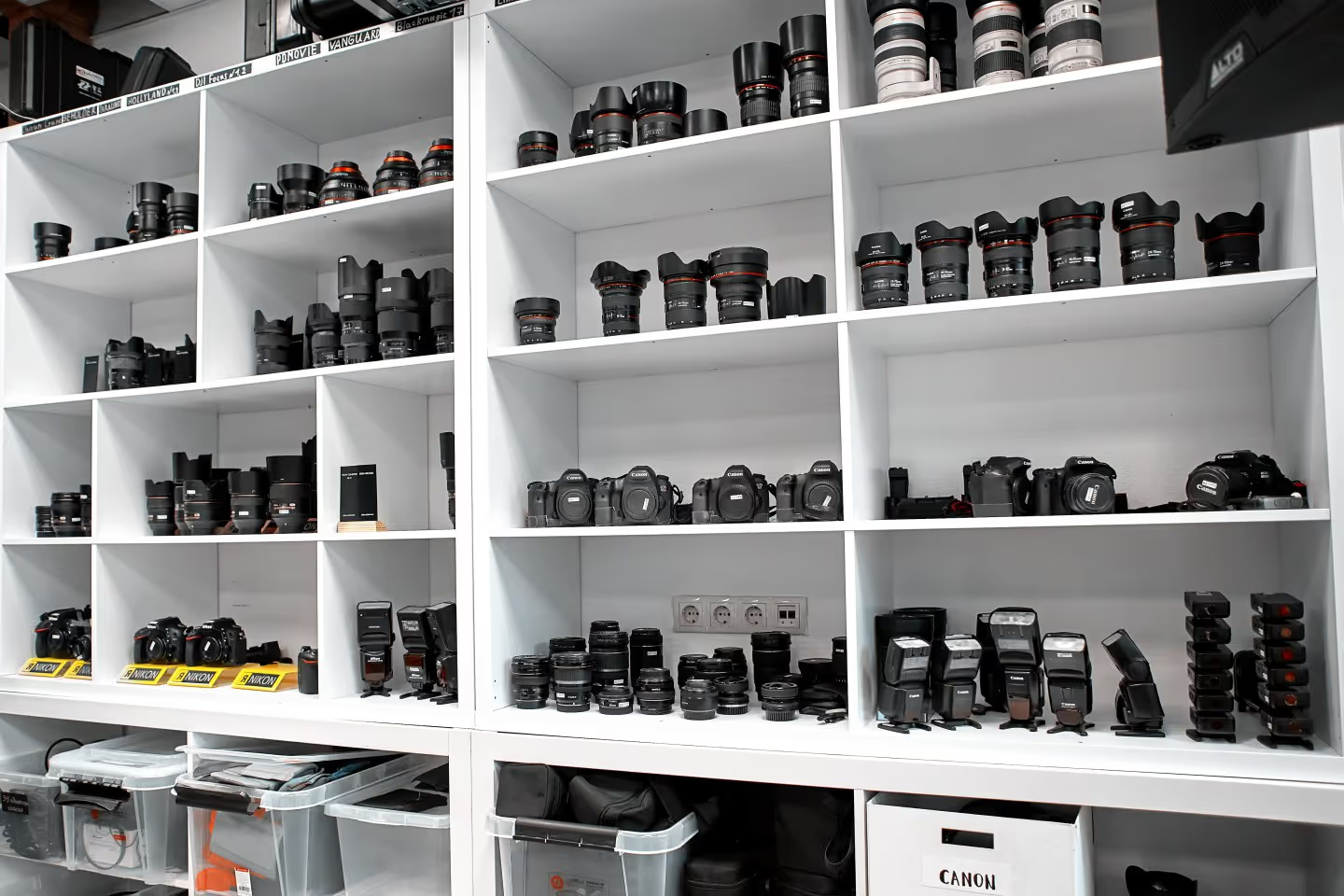Unlocking Success: What It Takes to Run the Best Rental Business in the Event Industry

Running the best rental business requires a blend of strategic planning, customer understanding, and operational efficiency. In a competitive market, standing out means providing exceptional service, maintaining high-quality inventory, and leveraging technology to streamline processes. Whether your focus is on event equipment, tents, or vehicles, understanding the nuances of your particular niche is crucial.
This document will delve into the essential components of creating and sustaining a successful rental business within the event industry, offering practical insights and relatable advice to help you achieve excellence in this dynamic field.
1. Understanding the Rental Market
2. Building a Strong Business Foundation
3. Optimizing Operations for Efficiency
4. Marketing Strategies for Visibility
5. Scaling and Growing Your Business
6. Conclusion: A Roadmap to Success in the Event Rental Industry
Understanding the Rental Market
Analyzing Market Trends
Analyzing market trends is critical for running the best rental business in the event industry. Start by examining local and national event rental data to identify seasonal patterns and demand fluctuations. Use this information to adjust your inventory and pricing strategies. Keep an eye on economic indicators such as employment rates and consumer spending, as these can impact the event rental market.
Additionally, monitor event industry and competitor activities to understand their strengths and weaknesses. Utilize online tools and platforms that provide real-time analytics to stay ahead of trends. Regularly review customer feedback to spot emerging needs and preferences.
By staying informed about market dynamics, you can make data-driven decisions that enhance your business's competitiveness and attract more customers.
Identifying Target Customers
Identifying target customers is essential for the best rental business in the event industry. Begin by defining your ideal customer profile based on factors like event type, size, and budget.
For instance, event equipment rentals might target corporate events, weddings, or conferences, while tent rentals may focus on outdoor gatherings or festivals. Utilize market research tools to gather demographic and psychographic data. Conduct surveys or interviews to understand customer needs, pain points, and preferences.
Analyze past rental data to identify trends and high-value customer segments. Create detailed buyer personas to guide your marketing and service efforts. By clearly identifying and understanding your target customers, you can tailor your offerings and marketing strategies to better meet their needs, ultimately driving more bookings and customer satisfaction.
Competitive Landscape Insights
Understanding the competitive landscape of the event rental business is vital for positioning your business as the best rental business. Start by conducting a thorough competitor analysis, identifying direct and indirect competitors within your niche.
Evaluate their strengths, weaknesses, pricing strategies, and customer reviews. Pay attention to their marketing tactics and service offerings. Use this information to identify gaps in the market that your party rental business can exploit. Benchmark your performance against top competitors to understand where you stand.
Additionally, stay updated on industry developments and technological advancements that could impact your competitive position. By gaining insights into the competitive landscape, you can develop unique selling propositions and strategies that set your rental business apart from the competition, ensuring long-term success.
Building a Strong Business Foundation
Crafting a Solid Business Plan
Crafting a solid business plan is a cornerstone for establishing the best rental business in the event industry. Begin by outlining your business objectives and the strategies to achieve them within the context of the event market.
Include detailed market research to validate your rental business idea itself, highlighting the demand for event rentals and target customer segments. Define your unique value proposition and how it differentiates you from other event rental companies. Develop a comprehensive financial plan, covering startup costs, revenue projections, and break-even analysis for the event industry.
Include a marketing plan detailing how you will attract and retain event customers, utilizing both online and offline channels. Outline operational plans, including inventory management, customer service protocols, and staffing requirements for the event industry. A well-thought-out business plan not only provides a roadmap for your rental business ideas but also serves as a vital tool for securing funding and measuring progress.
By having a clear and actionable plan, you can navigate the challenges of the event rental market more effectively and position your own ideal rental business idea for long-term success.
Legal and Regulatory Requirements
Navigating legal and regulatory requirements is crucial for running the best rental business in the event industry. Begin by researching local, state, and federal regulations that specifically apply to event rentals.
This may include zoning laws, safety standards, and licensing requirements for event equipment rental businesses, and venues. Consult with a legal expert to ensure compliance and avoid potential legal pitfalls. Secure necessary permits and licenses before commencing operations in the event industry. Understand your tax obligations, including sales tax and business income tax, and set up an efficient tax management system.
Additionally, consider liability insurance to protect rental fees against potential claims related to event rentals. Draft clear rental agreements that outline terms, conditions, and responsibilities for both parties involved in event rentals. Regularly review and update your legal documents to reflect any changes in regulations.
By staying informed and compliant, you protect your business from legal issues and build trust with event customers, contributing to a strong business foundation.
Financial Planning for Success
Effective financial planning is key to operating the best rental business in the event industry. Start by establishing a comprehensive budget that includes all operational costs, such as inventory acquisition, maintenance, marketing, and staffing within the context of the event industry. Develop a cash flow forecast to ensure you can meet financial obligations and manage unexpected expenses related to event rentals.
Consider various funding options like loans, investors, or personal savings to support your initial investment and ongoing capital needs for the event business. Implement a robust accounting system to track income and expenses accurately.
Regularly review financial statements to assess business performance and identify areas for improvement within the event industry. Set financial goals and key performance indicators (KPIs) to measure progress. Monitor pricing strategies to ensure competitiveness while maintaining profitability in the event rental market.
By maintaining disciplined financial management, you can ensure the sustainability and growth of your rental business within the event industry. A strong financial foundation allows you to make informed decisions and adapt to market changes, securing long-term success in the event rental business.
Optimizing Operations for Efficiency
Streamlining Inventory Management
Streamlining inventory management is essential for running the best rental business efficiently in the event industry. Begin by implementing an inventory management system that tracks all event rental assets in real-time. Use technology to automate inventory updates and monitor usage patterns for event rentals.
Regularly perform physical audits to ensure the accuracy of your records for event rental equipment. Categorize your event rental inventory based on demand, and prioritize maintenance for high-use event items to minimize downtime. Establish clear protocols for check-in and check-out processes to maintain control over your event rental assets.
Utilize data analytics to forecast demand for event rentals and optimize inventory levels, avoiding overstocking or understocking. Implement a maintenance schedule to extend the lifespan of your event rental assets and reduce repair costs. By effectively managing your inventory, you can ensure availability, enhance customer satisfaction, and improve operational efficiency in the event rental industry.
Streamlined inventory management not only reduces operational costs but also contributes to a seamless customer experience, positioning your whole rental company and business for success in the event market.
Implementing Effective Booking Systems
Implementing effective booking systems is vital for ensuring the smooth operation of the best rental business in the event industry. Start by choosing a booking platform that is user-friendly and integrates seamlessly with your inventory management system for event rentals.
Ensure it supports real-time availability and instant confirmations to enhance customer experience for event rentals. Offer multiple booking channels, such as online, mobile, and in-person, to cater to diverse customer preferences for event rentals. Automate notifications and reminders to reduce no-shows and improve efficiency in the event rental industry.
Collect customer data during the booking process for event rentals to tailor services and foster long-term relationships. Implement secure payment processing to build trust and ensure transactions are safe for event rentals.
Regularly review system performance and gather customer feedback to make necessary improvements. By optimizing your booking systems, you can streamline operations, reduce administrative burden, and increase customer satisfaction in the event rental industry. An efficient booking system is a cornerstone of operational efficiency, enabling you to focus on other critical aspects of your rental business within the event market.
Ensuring Quality Customer Service
Ensuring quality customer service is crucial for the success of the best rental business in the event industry. Begin by training staff to be knowledgeable, responsive, and courteous in all customer interactions related to event rentals. Establish clear communication channels, such as phone, email, and live chat, to address inquiries and issues promptly for event rentals.
Personalize customer interactions by using customer data to tailor services and recommendations for event rentals. Implement a feedback system to gather insights and identify areas for improvement in the event rental industry. Use this feedback to continuously refine your service offerings for event rentals.
Set clear service standards and performance metrics to ensure consistency across all customer touchpoints for event rentals. Empower employees to make decisions that prioritize customer satisfaction in the event rental industry.
By consistently providing high-quality service, you can build strong customer relationships, enhance loyalty, and generate positive word-of-mouth referrals for your event rental business. Quality customer service not only differentiates your rental business from competitors in the event market but also contributes to long-term success by fostering a loyal customer base.
Marketing Strategies for Visibility
Leveraging Digital Marketing
Leveraging digital marketing is essential for increasing the visibility of your rental business in the event industry. Start by developing a comprehensive online presence with a well-designed, mobile-friendly website that highlights your event rental offerings and makes booking easy.
Utilize search engine optimization (SEO) techniques to ensure your event rental business ranks high in search results, attracting more potential customers. Engage with audiences on social media platforms like Facebook, Instagram, and Twitter to build brand awareness and foster community within the event industry. Use targeted online ads to reach specific demographics within the event industry, maximizing your marketing budget.
Create valuable content on popular rental business ideas such as blogs, videos, or guides that address the needs of event customers and showcase your expertise in the event rental industry. Encourage satisfied event customers to leave online reviews, strengthening your business’s reputation within the event market.
Regularly analyze metrics from digital marketing campaigns to determine what strategies are most effective for the event rental industry. By leveraging digital marketing, you can significantly broaden your reach, attract more event customers, and establish your rental business as a leader in the event market.
Building a Strong Brand Identity
Building a strong brand identity is critical for distinguishing your rental business in the crowded event market. Start by defining your brand's core values, mission, and unique selling propositions that resonate with your target audience within the event industry.
Develop a memorable logo and visual style that reflect these values and apply them consistently across all marketing materials for your event rental business. Ensure your brand’s tone and messaging align with customer expectations and preferences within the event industry. Create a compelling brand story that connects emotionally with event customers and illustrates your rental business’s journey and purpose within the event market.
Utilize the power tools social media and content marketing to communicate your brand's personality and values within the event industry, fostering a loyal community. Encourage customer interaction and engagement to build relationships and enhance your brand's reputation within the event market. Regularly assess and adapt your brand strategies to maintain relevance and appeal within the event industry.
By building a strong brand identity, you create a lasting impression on event customers, encourage loyalty, and elevate your rental business above competitors in the event market.
Utilizing Customer Testimonials
Utilizing customer testimonials effectively can enhance the credibility and visibility of your rental business within the event industry. Begin by encouraging satisfied event customers to share their experiences through online reviews or direct feedback.
Feature these testimonials prominently on your website, social media profiles, and marketing materials to build trust with potential event customers. Video testimonials add a personal touch and can be particularly persuasive within the event market.
Ensure that testimonials highlight specific aspects of your event rental services, such as quality, reliability, and customer support, to address potential concerns. Regularly update and rotate testimonials to keep content fresh and relevant within the event industry.
Additionally, respond to both positive and negative feedback to demonstrate your commitment to customer satisfaction and continuous improvement within the event and small equipment rental business. By leveraging customer testimonials, you provide social proof of your tool rental business’s value within the event market, helping to convert potential customers into loyal clients and strengthening your market position.
Scaling and Growing Your Business
Expanding Service Offerings
Expanding service offerings is a strategic way to scale your rental business within the event industry. Start by analyzing customer feedback and market trends to identify unmet needs or emerging demands within the event market. Consider diversifying your inventory or introducing complementary services that align with your core business model within the event industry.
For instance, an event equipment rental business might offer on-site event planning or event staffing services. Ensure that new offerings are aligned with your brand identity and operational capabilities within the event industry. Test new services on a small scale to gauge customer response and refine your approach within the event market.
Promote new offerings through targeted marketing campaigns to attract both existing and new customers within the event equipment rental industry. Monitor the performance of these services and gather feedback to make necessary adjustments within the event market.
By expanding your service offerings, you can increase revenue streams, enhance customer satisfaction, and strengthen your competitive position within the event industry.
Exploring New Market Opportunities
Exploring new market opportunities is crucial for scaling your rental business within the event industry. Begin by conducting market research to identify potential geographic regions or customer segments within the event industry that are underserved.
Analyze demographic data, economic conditions, and cultural trends to understand the viability of new markets within the event industry. Consider partnerships or collaborations with local rental businesses within the event industry to gain insights and establish a foothold in these areas. Evaluate the competition within the event industry to identify gaps your profitable rental business can fill with unique offerings.
Tailor marketing strategies to resonate with the preferences and needs of the new target audience within the event industry. Test the market with a pilot program to assess demand and operational challenges within the event industry. Leverage technology to facilitate entry into new markets within the event industry, such as online platforms that broaden your reach.
By exploring new market opportunities, you can diversify your revenue streams, reduce risk, and position your rental business for long-term growth within the event industry.
Leveraging Technology for Growth
Leveraging technology is vital for the growth of your rental business within the event industry. Start by adopting advanced inventory management systems to streamline operations and enhance efficiency within the event industry.
Utilize data analytics to gain insights into customer behavior, market trends, and operational performance within the event industry. Implement customer relationship management (CRM) software to personalize interactions and improve customer retention within the event industry. Explore the use of mobile apps or platforms that allow customers to easily access rental services anywhere, make reservations, and provide feedback within the event industry.
Automate routine tasks, such as billing and communication, to reduce administrative workload and minimize errors within the event industry. Consider virtual reality or augmented reality tools to showcase event rentals, offering customers a unique and engaging experience within camera rental business. Stay informed about emerging technologies that can enhance your business operations and customer experience within the event industry.
By integrating technology into your growth strategy party supply rental business, you can improve efficiency, expand market reach, and differentiate your rental business in a competitive landscape within the event industry.
Conclusion: A Roadmap to Success in the Event Rental Industry
Building a Thriving Event Rental Business
The success of an event rental business hinges on a delicate balance of strategic planning, operational excellence, and customer satisfaction. By understanding the intricacies of the event industry, leveraging technology, and consistently adapting to market trends, you can create a sustainable and profitable party rental venture.
Key Takeaways from This Guide
- Market Analysis and Customer Understanding: Conduct thorough market research to identify target customers, analyze industry trends, and assess the competitive landscape. Tailor your offerings and marketing strategies to meet the specific needs of event planners. This involves understanding the types of events your target audience is planning, their preferred rental items, and their budget constraints.
- Operational Efficiency and Technology: Streamline inventory management, implement effective booking systems, and leverage technology to enhance operational efficiency and provide exceptional customer service. This includes utilizing inventory management software to track equipment, automating booking processes, and employing customer relationship management (CRM) tools to build stronger relationships with clients.
- Marketing and Branding: Develop a strong brand identity, utilize digital marketing channels, and leverage customer testimonials to increase visibility and attract new customers. This involves creating a unique brand narrative, utilizing social media platforms effectively, and encouraging satisfied customers to share their experiences.
- Financial Management and Growth: Establish a solid financial foundation, explore new market opportunities, and expand service offerings to drive growth and profitability. This includes developing a comprehensive business plan, managing finances effectively, and identifying new revenue streams through diversification.
A Note on Continuous Improvement
The event industry is dynamic and ever-evolving. To maintain a competitive edge, it is essential for rental businesses to remain adaptable, embrace innovation, and prioritize continuous improvement. Regularly review your business plan, seek feedback from customers, and stay informed about industry trends to ensure your rental business remains at the forefront of the market.
Additional Considerations
- Sustainability: Consider incorporating sustainable practices into your business operations, such as using eco-friendly materials and reducing your environmental impact.
- Risk Management: Develop strategies to mitigate risks, such as insurance coverage, contingency planning, and risk assessment.
- Partnerships and Collaborations: Explore opportunities to partner with other businesses within the event industry, such as venues, caterers, or planners, to expand your reach and offer comprehensive solutions.
By following the guidelines outlined in this comprehensive rental business ideas guide and considering these additional factors, you can position your event rental business for long-term success. Remember, the journey to a profitable rental business idea and becoming the best rental business requires dedication, perseverance, and a relentless pursuit of excellence.
Frequently asked questions
Previous blog posts

Understanding Equipment Rental Agreement Terms and Conditions: A Practical Guide
Understanding Equipment Rental Agreement Terms and Conditions: A Practical Guide

Unlock Efficiency: How Cloud Based Rental Software Transforms the Event Industry
Unlock Efficiency: How Cloud Based Rental Software Transforms the Event Industry

